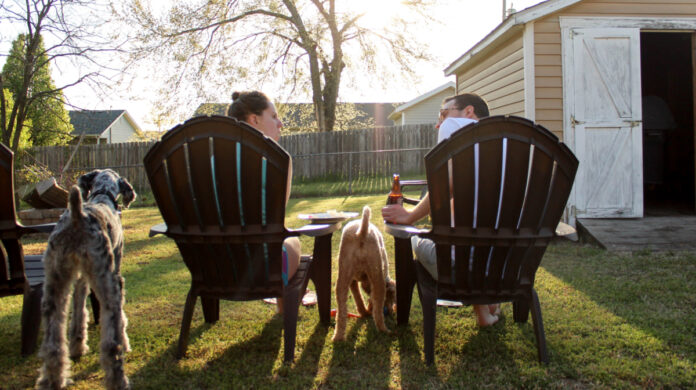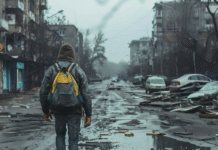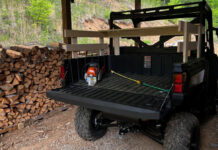
If the news media are to be believed, scientists appear convinced that there will be a second wave of coronavirus cases. They seem less definite about whether this will be due to seasonality, much like the flu returns every winter, or if it will be due to a lack of social distancing and relaxation of stay-home orders.
We also don’t know if the second wave will be worse than the first. History tells us that the second year of the Spanish Flu was worse than the first, but it may simply have spread slower due to the lack of airline travel and the more rural nature of our country at the time. It could well have taken a year in 1918 to spread as far as it has here in a quarter.
Either way, as a wave of viral illnesses and death rolls across South America and makes inroads in Africa, it’s pretty clear that COVID-19 is not going away. Hot spots like Brazil and India could account for hundreds of thousands or even millions of new cases, creating fertile spots from which the virus could spread, or re-spread, across nations and continents.
Preparing for the Worst
As a prepper, we prepare for the worst and hope for the best. That means we have to assume that there will be a second wave and it will be at least as bad as the first.
While COVID-19 caught many by surprise earlier this year, there is absolutely no reason why a second wave should catch you unprepared. We now have several months of first-hand experience to learn from and we would be foolish if we did not take advantage of our prior experience. Even if President Trump has said he will not shut down the country again, the governors might shut things down or the situation might get some bad that most people just stay home willingly. I’m going to use the next couple months with minimal restrictions to focus my preps in three areas: Food and other supplies, economics, and location. I recommend you do the same.
Food and Other Supplies
Shortages were probably the first big story as the threat of coronavirus grew. First it was toilet paper and disinfectant wipes. Then it was food, including staples like eggs, flour and yeast. Finally we saw meat shortages. Even now, there are empty spots on store shelves and the supply chain is stretched and thinning.
Our solution: Check our inventory levels and buy things we need. Consider raising chickens. Place an order with our local beef farmer. Build up our stockpile of the things we found we needed most when we could not go to the store. We’re going to also take advantage of this potential lull between waves to visit the doctor, buy any clothing we need and run any errands we’ve been putting off.
This time around, I am also going to look at future projects and stock things we need to complete them, just in case we can’t run out to the home improvement store.
Economic Preps
There was a huge wave of layoffs, furloughs, and unemployment this time around, followed by the collapse of small companies that were forced into bankruptcy, so a second wave of the coronavirus might be even worse than the first. Even if you were lucky enough to hang on to your job this time around, you should be saving money, reducing your financial footprint, and looking at things you can cut back on should you become unemployed as a result of the second wave.
At a minimum, you need money to pay your rent, utilities and food. That means you should have at least three and preferably six months of more of expenses in the bank.
That’s difficult for many people to do, but if you don’t save every penny while you can, you will never get there. Here are a couple things to consider:
- If you are a two-care family and one or both of you will be working from home, do you still need two cars? When you sell one, you’ll not only raise some funds but save hundreds of dollars in monthly payments and insurance costs. If you have a car going off lease in the next few months, try to get along without replacing it right away.
- Do you really need to go on vacation? Cancel any plans that involve tickets and travel. Disney land can wait another year or two. Drive or stay home.
- If you are paying for your kids to go to a private school or college, think twice about whether you can justify that expense when they are sitting at home in front of a screen. Maybe you can save money with a less expensive online alternative or, if they are younger, with home schooling.
Improve your Location
While I would not consider this a good time to make a large expenditure, buying a house would be an exception to that rule.
Most of us have been on lockdown, largely unable to leave the confines of our property. If you suddenly decide you want more property, whether that is a yard or acreage, I can’t blame you. If you now have the freedom to work from home, you can move further from the crowded cities that seemed to harbor COVID-19 without increasing your commute
We’re already looking for the perfect prepper property. That is something we hope to accomplish this summer. We aren’t moving from the city to the farm; this will be the fifth step on our journey from a New York City apartment to a rural live-in retreat. Don’t be afraid to take your next step.
If you can’t move, look at what you can do to improve where you are. If you are going to be working at home full time, make a home office and move out of the dining room. Get yourself an office chair. If you are working on a laptop, consider getting a separate monitor and keyboard to improve the ergonomics of your work space.
If you have kids and are suddenly looking at a summer of no camps and minimal outside activities, consider things you can build to enhance your backyard, like a tree house or a swing set. Consider planting a small garden that the kids can help maintain or get a pet.
If you expect to be locked indoors, buy a few board games or some arts and crafts for projects. Get some new library books or
Prep Now for the Second Wave
This fall, we may look back on this early summer period when COVID-19 cases were dropping and stores were reopening and wish we had done something to prepare for the second wave when we had the chance. We might wish we had filled the freezer, or learned to make bread, put some money in the bank, bought some books, or done something to improve our home life. Now’s your chance to fix what you hated most about the lockdown; don’t miss it.
Recommended Reading:
- How to Prep for a Recession
- What’s Next: Recession, Depression, Economic Collapse or Rebound?
- Quarantine Day 65: We Start Stocking Up Again







